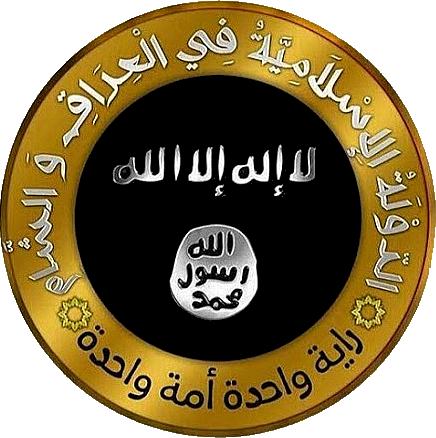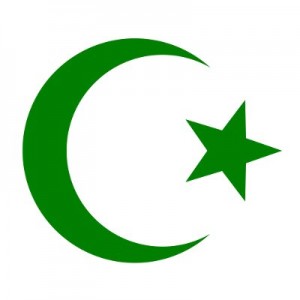Guest Columns
Islam: anti-civilization

“To speak of Judaism, Christianity, and Islam as the ‘three Abrahamic faiths,’ the ‘three religions of the Book,’ or the three monotheisms, obscures rather than illuminates. These familiar tropes ought to be retired.” So said George P. Weigel, Catholic theologian, in 2007.
Introduction
The purpose of this study is to review what various scholars, ancient and modern, have said or written about Islam, especially about Islam’s deity, Allah. We shall show, inter alia,
- That the Ash’arite school of Islam, which rejected the rationalist tradition of classical Greek philosophy, has been engaged in a life-and-death struggle with Western Civilization since the ninth century;
- that Muhammad, the founder of Islam, did not purge this creed from the polytheism and paganism of pre-Islamic days;
- that Islam is not consistent with the intellectual and moral monotheism we attribute to its founder, the Patriarch Abraham;
- that the Islam which now holds sway over some 1.5 billion Muslims stands utterly opposed to Judeo-Christian civilization;
- that Islam has its roots in a pagan and polytheistic ideology, wearing the veneer of monotheism to multiply its adherents;
- that the great Muslim philosopher al-Farabi, who rejected Islam’s anti-rational world view, was a disciple of Plato and Aristotle and, to avoid punishment or death, was a Muslim in dress only; and finally,
- that countless scholars have sacrificed their intellects by obscuring the true nature of Islam and its existential threat to Western Civilization, indeed, to civilization per se.
Allah: The “Moon-God”
These excerpts come from a discussion on a site called “Yeshua” that has since lapsed.

The crescent moon and star of Islam
Archaeologists have uncovered temples to the Moon-god throughout the Middle East. From the mountains of Turkey to the banks of the Nile, the most wide-spread religion of the ancient world was the worship of the Moon-god [really AllaH]…. As demonstrated by Sjoberg and Hall, the ancient Sumerians worshiped a Moon-god who was called many different names…. His symbol was the crescent moon. Given the amount of artifacts concerning the worship of this Moon-god, it is clear that this was the dominant religion in Sumeria. The cult of the Moon-god was the most popular religion throughout ancient Mesopotamia including] the Assyrians, Babylonians, and the Akkadians…
In ancient Syria and Canna, the Moon-god … was usually represented by the moon in its crescent phase. At times the full moon was placed inside the crescent moon to emphasize all the phases of the moon…. In Persia, as well as in Egypt, the Moon-god is depicted on wall murals and on the heads of statues. He was the Judge of men and gods. The Old Testament constantly rebuked the worship of the Moon-god (see: Deut. 4:19;17:3; II Kings. 21:3,5; 23:5; Jer. 8:2; 19:13; Zeph. 1:5, etc.) When Israel fell into idolatry, it was usually the cult of the Moon-god…The Ur of the Chaldees [where Abraham grew up] was … devoted to the Moon-god … The Old Testament constantly rebuked the worship of the Moon-god (see Deut. 4:19;17:3; II Kings 21:3,5; 23:5; Jer. 8:2; 19:13; Zeph. 1:5, etc.
Key distinctions from monotheism
Al-Kindi, one of the early Christian apologists against Islam, pointed out that Islam and its god Allah did not come from the Bible but from the paganism of the Sabeans. They did not worship the God of the Bible but the Moon-god and his daughters al-Uzza, al-Lat and Manat. Dr. Newman concludes his study of the early Christian-Muslim debates by stating,
Islam proved itself to be…a separate and antagonistic religion which had sprung up from idolatry.
Islamic scholar Caesar Farah concluded,
There is no reason, therefore, to accept the idea that Allah passed to the Muslims from the Christians and Jews.
The Arabs worshiped the Moon-god as a supreme deity. But this was not biblical monotheism. While the Moon-god was greater than all other gods and goddesses, this was still a polytheistic pantheon of deities. Now that we have the actual idols of the Moon-god, it is no longer possible to avoid the fact that Allah was a pagan god in pre-Islamic times. Is it any wonder then that the symbol of Islam is the crescent moon? That a crescent moon sits on top of their mosques and minarets? …. [Is it any wonder that everywhere in the ancient world], the symbol of the crescent moon can be found …. on the flags of Islamic nations?
Conclusions
The Muslim claim that Allah is the God of the Bible and that Islam arose from the religion of the prophets and apostles, fails before solid, overwhelming archaeological evidence. Islam is nothing more than a revival of the ancient Moon-god cult. It has taken the symbols, the rites, the ceremonies, and even the name of its god from the ancient pagan religion of the Moon-god. As such, it is sheer idolatry and must be rejected by all those who follow the Torah and Gospel.
Testimonies
Saint Thomas on Islam:
According to Muhammad’s own admission, Islam stands or falls with the person of its prophet. Hence it is appropriate to examine Muhammad’s character, for which purpose let us begin with the views of St. Thomas Aquinas. Describing Muhammad as a man of violence, Aquinas writes:
He seduced the people by promises of carnal pleasures … His teachings also contained precepts that were in conformity with [such] promises … the truths that he taught were mingled with many fables and with doctrines of the greatest falsity… he perverts almost all the testimonies of the Old and New Testaments by making them fabrications of his own, as can be seen by anyone who examines his law. It was, therefore, a shrewd decision on his part to forbid his followers to read the Old and New Testaments, lest these books convict him of falsity.[1]
Bat Ye’or on Islam:
That Islam is a militant religion follows from the character of Muhammad as a man of war. In her monumental work, Islam and Dhimmitude: Where Civilizations Collide (2002), Bat Ye’or avoids discussing the relationship between Muhammad’s character and Islamic theology.[2] Instead, she documents Islam’s fourteen-century record of plunder, rape, and genocide.
Bernard Lewis on Islam
One would hardly know of Islamic barbarism reading the doyen of Islamic scholars, Bernard Lewis.Judging from his book What Went Wrong? (2002), nothing is intrinsically wrong with the religion that enthralls 1.5 billion people.[3]And Lewis, a Jewish scholar, is not known as an apologist of Islam.[4]
Serge Trifkovic on Islam
Trifkovic’s The Sword of the Prophet (2002) departs from the moral “neutrality” of academia and provides a “Politically Incorrect Guide to Islam.”[5] (Do not confuse this with Robert Spencer’s Politically Incorrect Guide to Islam and the Crusades, 2005.) Trifkovic portrays Muhammad as a simple preacher who became a fanatical warlord in the process of conquering Mecca and Medina. Citing the Quran[6] and the voluminous Hadiths—the Traditions or Reports of what Muhammad said and did—he exposes Islam’s prophet as cruel, ignorant, and lascivious. Thus, after slaughtering Arab tribesmen and looting their camels, the prophet and his followers kidnapped their women and staged an orgy of rape.
One Hadith explains:
We desired them, for we were suffering from the absence of our wives, but at the same time we also desired ransom for them. So we decided to have sexual intercourse with them but by observing ‘azl [coitus interruptus]. But we said: We are doing an act whereas Allah’s Messenger is amongst us; why not ask him? So we asked Allah’s Messenger … and he said: It does not matter if you do not do it, for every soul that is to be born up to the Day of Resurrection will be born [a view consistent with the doctrine of predestination (P.E.)].[7]
Convert or die
To the men of one Jewish tribe, Muhammad offered the choice of conversion to Islam or death. When they refused, soldiers decapitated up to 900 in front of their women and children. “Truly the judgment of Allah was pronounced on high,” was Muhammad’s comment. His men subsequently raped the women. Trifkovic comments: “That Muhammad’s actions and words, as immortalized in the Quran and recorded in the Traditions, are frankly shocking by the standards of our time—and punishable by its laws, that range from war crimes and murder to rape and child molestation—almost goes without saying.”[8]
Trifkovik is aware of the cultural and historical relativism that would prompt Western intellectuals to say, “We must not extend the judgmental yardstick of our own culture to the members of other cultures who have lived in other eras.” He counters this relativism by pointing out that “even in the context of seventh century Arabia, Muhammad had to resort to divine revelations as a means of suppressing the prevalent moral code of his own milieu.”[9]
Muhammad is thus revealed as a deeply flawed man by the standards of his own society, as well as those of the Jewish and Christian Scriptures, and even by the law of which he claimed to be the divinely appointed medium and custodian. Trifkovic sums up his assessment of Muhammad by quoting the eminent orientalist Sir William Muir (1819-1905): “the sword of Muhammad and the Quran are the most fatal enemies of civilization, liberty, and truth which the world has yet known.”[10]
What about the Quran?
Consider its bizarre references to the Hebrew and Christian Scriptures. Abraham Geiger (1810-1874) writes: “The order in which he gives the prophets is interesting, for immediately after the patriarchs he places first Jesus, then Job, Jonah, Aaron, Solomon, and last of all David [Sura 4:161]. In another passage [Sura 6:84-86] the order is still more ridiculous, for here we have David, Solomon, Job, Joseph, Moses, Aaron, Zachariah, John, Jesus, Elijah, Ishmael, Elisha, Jonah, and Lot! The incorrect spellings of the names of these prophets, as well as the parts which [Muhammad] assigns to them in history, proves that he had never even looked into the Hebrew Scriptures.”[11]
Ibn Warraq (Why I am Not a Muslim) cites a welter of historians and orientalists, who all describe the “Arabian paganism” that punctuates the Quran—for example, the rites and rituals of the Pilgrimage to Mecca (see Suras 2:153; 22:28-30; 5:1-4; 22:23).[12] Islam even owes the term “Allah” to heathen Arabs. Perhaps Warraq’s most damaging statement about Islam appears in the very head note of his book, where he quotes the renowned historian and philologist Ernest Renan (1823-1892):
Muslims are the first victims of Islam. Many times I have observed in my travels in the Orient that fanaticism comes from a small number of dangerous men who maintain others in the practice of religion by terror. To liberate the Muslim from his religion is the best service that one can render him.
The Meaning of Jihad
Now let us turn to the all-important Islamic concept of jihad. Trifkovic points out that the notion of “inner” jihad—of one’s personal fight against his ego and sinful desires—came into being only after the Islamic Empire had been established.Of its countless jihads against unbelievers, Trifkovic emphasizes Islam’s massacres in India, which “are unparalleled in history, bigger in sheer numbers than the [Nazi] Holocaust, or the massacre of the Armenians by the Turks.”[13]
Like Bat Ye’or, he explodes the myth of Islam’s “Golden Age.” He notes that the medieval philosophers alFarabi and Avicenna, both Persian, “belong to ‘Islam’ just as much as Voltaire belongs to ‘Christianity.’”[14] (Muhsin Mahdi has shown that al-Farabi crafted his work on Plato and Aristotle in an esoteric style. On the surface he appears as a devout Muslim; but a close reading reveals him as a disciple of Greek philosophy.)[15]Contrary to its apologists, the Muslim Empire inherited the knowledge and skills of Greece, Persia, and India (including what are still mistakenly known as “Arabic” numbers.) “Whatever flourished,” writes Trifkovic, “it was not by reason of Islam, it was in spite of Islam.”[16]He quotes the incomparable nineteenth-century philosopher Alexis de Tocqueville:
I studied the Quran a great deal.I came away from that study with the conviction that by and large there have been few religions in the world as deadly to men as that of Muhammad.So far as I can see, it is the principal cause of the decadence so visible today in the Muslim world and, though less absurd than the polytheism of old, its social and political tendencies are in my opinion more to be feared, and I therefore regard it as a form of decadence rather than a form of progress in relation to paganism itself.[17]
Endnotes
[6] The Quran is spelt variously as Qur’an, Koran, Kuran, etc. “Quran” will be the preferred spelling in this essay.
[9] Ibid., p. 50. See Ibn Warraq, Why I am Not a Muslim; originally published in 1995, p. 97, who rejects this relativism.
[15] See Muhsin Mahdi, Alfarabi’s Philosophy of Plato and Aristotle, pp. 3-10. Ajami, pp. 215-216, points out that the ninth-century Mu’tazilah philosophers, influenced by Greek philosophy, concluded that the Quran was a human creation.
-

 Civilization4 days ago
Civilization4 days agoWhy Europe Shouldn’t Be Upset at Trump’s Venezuelan Actions
-

 Christianity Today4 days ago
Christianity Today4 days agoSurprising Revival: Gen Z Men & Highly Educated Lead Return to Religion
-

 Executive5 days ago
Executive5 days agoWaste of the Day: Can You Hear Me Now?
-

 Civilization2 days ago
Civilization2 days agoTariffs, the Supreme Court, and the Andrew Jackson Gambit
-

 Civilization2 days ago
Civilization2 days agoWhy Europe’s Institutional Status Quo is Now a Security Risk
-

 Civilization3 days ago
Civilization3 days agoDeporting Censorship: US Targets UK Government Ally Over Free Speech
-

 Executive3 days ago
Executive3 days agoWaste of the Day: Wire Fraud, Conflicts of Interest in Connecticut
-

 Civilization3 days ago
Civilization3 days agoEpstein and the destruction of trust









